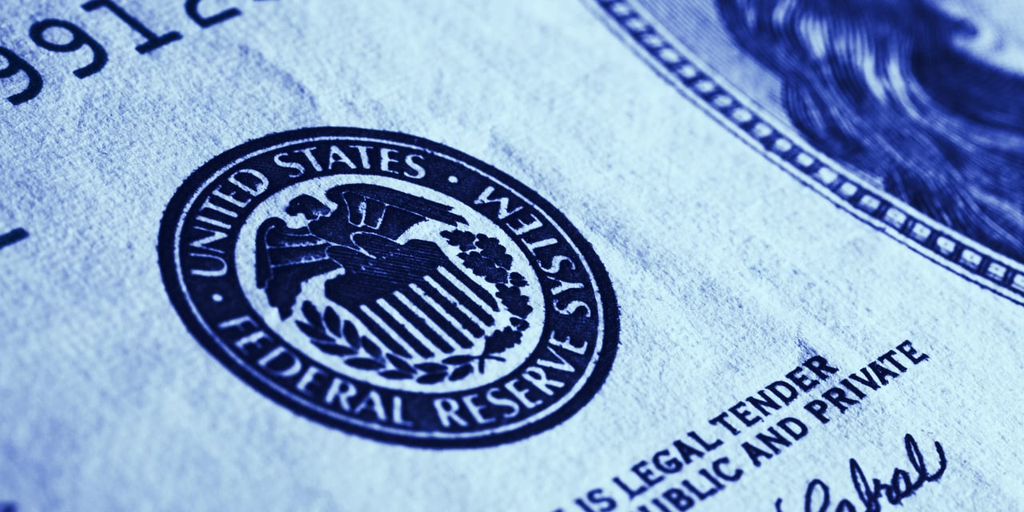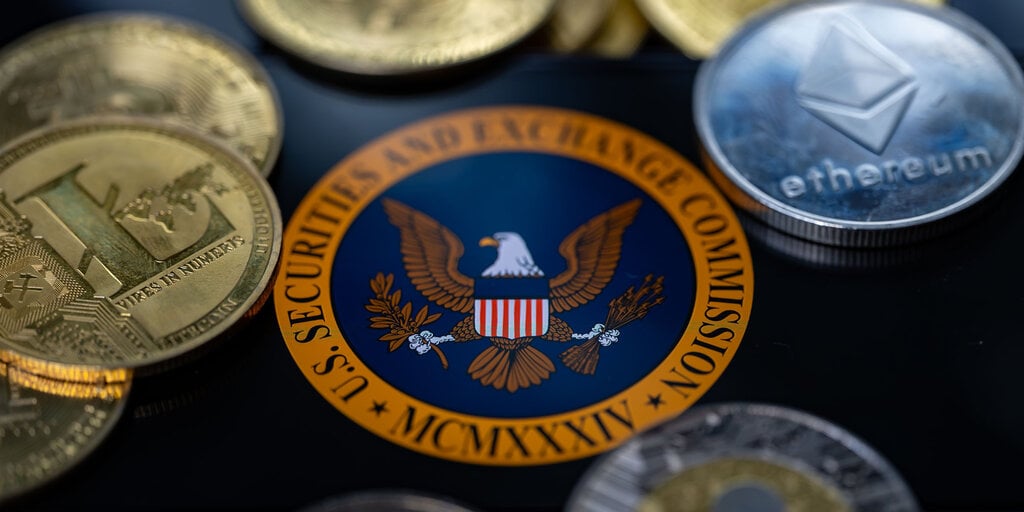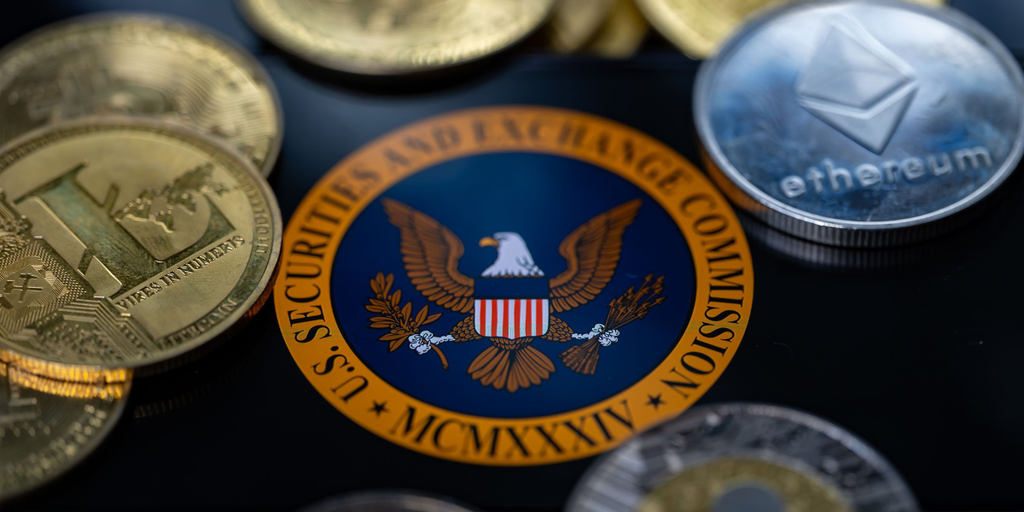Law and Order
From the Crypto Trenches to the Hill: Why Solana Is Making a Big Push in Washington
Published
2 weeks agoon
By
admin

When Solana debuted in 2020, it set out to dominate decentralized finance. Now, five years and more than eight billion transactions later, supporters of the so-called Ethereum killer have assumed a far more ambitious undertaking: conquering the halls of Congress.
However, advocating for Solana on Capitol Hill—where DeFi still suffers from its association with money launderers and hackers, despite a growing embrace of crypto—won’t be easy.
Enter the Solana Policy Institute.
Founded in March, the policy arm of the second-largest layer-1 network by total-value locked aims to represent the many pseudonymous coders and founders building on Solana and other blockchains within the sprawling DeFi sector. DeFi is a catchall term that represents a wide array of crypto-driven, autonomous financial services that do not require centralized intermediaries like banks.
The nonprofit will be helmed by President Kristin Smith—the outgoing Blockchain Association CEO—and CEO Miller Whitehouse-Levine, the one-time DeFi Education Fund Director. They’re two star lobbyists equally fluent in D.C. discourse and the slang of the crypto trenches.
Together, they are setting out to reform the DeFi sector’s shadowy reputation and to ensure the space remains top of mind among policymakers.
“A lot happens in the world, and Congress ought to be responsive to what is happening,” Whitehouse-Levine told Decrypt.
“We want to make sure that those in D.C. policy-making circles and everyone advocating for their interests here are aware of all the cool stuff happening on Solana and the possibilities of development on-chain,” he added.
The SPI is planning to organize a spate of “fly-ins,” springing its developers, founders and other builders from the trenches and sending them to Capitol Hill to educate lawmakers, according to Whitehouse-Levine.
The fly-ins represent a major ramping up of the layer-1’s presence on Capitol Hill. For years, advocates for Solana and other leading blockchains have convened for monthly phone calls on DeFi policy, Whitehouse-Levine said. But, those efforts haven’t always translated to invitations to mingle with lawmakers.
“There is no substitute for the folks actually building these things coming to Washington, explaining what they’re trying to accomplish to policymakers and showing policymakers what they’re building,” Whitehouse-Levine said.
It remains unclear how SPI intends to fund its education push, however. Whitehouse-Levine did not disclose the amount of money the Solana Policy Institute has in its coffers, and he declined to identify the source of those funds.
A source familiar with the matter told Decrypt the institute intends to make a major funding announcement soon, however.
Meanwhile, three sources in the Solana ecosystem told the publication Unchained on Friday they understood the organization to be supported with funding from the Solana Foundation.
The Solana Policy Institute is not officially associated with the Switzerland-based Solana Foundation, which supports the adoption and growth of the Solana network. However, their mandates are largely aligned.
The Solana Foundation did not respond to Decrypt’s repeated requests for comment on the matter.
DC’s growing crypto embrace
SPI’s founding comes just months after crypto lobbyists helped elect the most pro-crypto Congress and administration yet, accelerating the industry’s efforts to soften stigmas around digital assets stateside.
But even as lawmakers largely embrace Web3 firms under pro-crypto U.S. President Donald Trump, some have kept decentralized finance players at arm’s length. The sector’s pseudonymous founders, meme coin creators, and “shadowy super coders” are largely untrained in the kind of politicking that their corporate-coded centralized exchange counterparts have mastered to advance their interests on Capitol Hill.
They also have splashed less cash on courting regulators and lawmakers. In 2024, corporate crypto titans such as Coinbase, Ripple Labs and investment firm Andreessen Horowitz ranked as the top three donors to pro-crypto super PAC Fairshake, allocating more than $150 million combined to the group, according to OpenSecrets data.
Meanwhile, donors linked to Solana, which ranked as the PAC’s 20th-largest donor and one of its biggest DeFi contributors, gave just $25,000 to the group last year, the same data shows.
Those factors may have kept DeFi leaders out of some important decision-making rooms. In March, the Trump administration hosted more than a dozen crypto company leaders at its inaugural Crypto Summit in Washington D.C. Just a few of the roughly two dozen invitees represented DeFi projects.
Still, SPI founder Whitehouse-Levine is confident that the Solana Policy Institute, led by experts like Smith—a Fortune 40 Under 40 in Government and Politics alumna and top lobbyist, according to the U.S. politics-focused newsroom The Hill—will help DeFi enter more conversations on the Hill.
“She is an icon in crypto policy, and…as far as I’m concerned, the foundation of the industry’s efforts as they have been built over the last eight years,” he said.
‘Meme coin casino’ makeover
But Solana’s reputation is not necessarily as polished as that of Smith’s.
Founded in 2020, the network has in part attracted a growing user base over the last year-plus through its so-called meme coin casino, where it’s among the cheapest and easiest places to launch a token that could just as rapidly skyrocket and then plunge in value.
It’s also an anything-goes playground where people set themselves on fire or fake their own deaths to pump tokens with no intrinsic utility, while heads of state can rug-pull unsuspecting traders via social media.
That spate of antics poses a major risk to the platform’s ability to connect with regulators and legislators, but Whitehouse-Levine believes good policy can curb the impact of those incidents and help the ecosystem reform its image.
“First things first, we can’t have people setting themselves on fire,” he told Decrypt. “Like, I can’t believe we’re actually saying that out loud.”
“There’s been multiple speculative frenzies in the history of crypto, and to the extent that [a]clear regulatory framework can help bring that in, that’s in everyone’s interests,” Whitehouse-Levine added.
However, to get that kind of legislation passed, it’s important that developers and legislators take the time to understand one another with the help of go-betweens like Whitehouse-Levine, Smith, and other policy experts, DeFi Education Fund Executive Director Amanda Tuminelli—who will be working closely with SPI on DeFi-focused policy initiatives—told Decrypt.
“We’re all trying to reach out directly to developers and serve as a bridge between DeFi developers and the Hill,” Tuminelli said.
“It’s very important that we get clear law on the books while we can, [and] while Congress seems like they’re in a place where that could happen,” she said, adding that she’s seen in recent months an increase in securities regulators and lawmakers holding meetings on issues that impact DeFi developers.
“I think people are recognizing that opportunity and putting resources behind it,” Tuminelli added.
Edited by James Rubin
Daily Debrief Newsletter
Start every day with the top news stories right now, plus original features, a podcast, videos and more.
Source link
You may like


Here’s How Bitcoin Could Boost Demand for US Treasuries, According to Macro Guru Luke Gromen


Experts Predict US Recession in 2025 if Trump-China Trade War Tariffs Stay


Monero Jumps 51% After ‘Suspicious Transfer’ of $333M in Bitcoin


ZachXBT flags suspicious $330M Bitcoin transfer triggering Monero surge


Monero’s XMR Rockets 40% as XRP Leads Crypto Majors Gains


The 5 top crypto loan platforms of 2025
Law and Order
Why Alabama’s Securities Commissioner Dropped Its Case Against Coinbase
Published
2 days agoon
April 26, 2025By
admin

Alabama’s Securities Commission this week dropped its enforcement action against crypto exchange Coinbase for its staking program—an apparent sign that regulators are letting up on digital assets companies as the federal government continues its pro-crypto pivot under President Trump.
But Commissioner Amanda Senn told Decrypt the regulator is still as committed as ever to promoting “market stability and integrity”—and it won’t hesitate to bring enforcement actions against Coinbase or any other firm, if necessary.
“We merely recognized that we may be able to accomplish what we want without the time and expense of litigation,” Senn said. “Had we been further down the road [in our action against Coinbase], we may have proceeded.”
Crypto out of the crosshairs?
Alabama is one of 10 states that banded together in June 2023 to bring a spate of enforcement actions against Coinbase, alleging the crypto exchange had violated securities laws by failing to properly register its staking services.
But now, as policymakers and federal regulators ratchet back their oversight of the digital asset industry under pro-crypto President Donald Trump, that unity has largely crumbled.
Five of the states—Illinois, Kentucky, South Carolina, Vermont, and Alabama—have dropped their enforcement actions against Coinbase over the past few weeks, while regulators in five other states are resisting pressure from Coinbase to do the same, according to a report from political news outlet Punchbowl.
Five holdouts are still electing to waste taxpayer resources on lawsuits, and four of those have banned staking with @coinbase, depriving consumers of the right to earn on their platform of choice. 2/3
— paulgrewal.eth (@iampaulgrewal) April 23, 2025
“We’re halfway there: Alabama just dropped its enforcement action against Coinbase,” the firm’s lead legal counsel Paul Grewal said Wednesday in a social media post, adding that the states’ actions were “misguided” and claiming that the “holdouts are still electing to waste taxpayer resources.”
However, Senn told Decrypt that she and her colleagues “don’t believe litigation is a waste of time”—and their call to drop an enforcement action against the firm “should not be taken by anyone that we will not litigate if an appropriate regulatory scheme [for the cryptocurrency industry] is not adopted” in the U.S.
Alabama rescinded its enforcement action against Coinbase to “allow time” for policymakers to create a legislative framework for the cryptocurrency industry—a move that could save investor shareholder and taxpayer dollars, Senn explained.
“By all accounts, a regulatory framework appears imminent, so it made sense for us to table our litigation posture and allow time for our policymakers to continue their good work,” Senn said.
Experts expect a market structure bill to pass in the latter half of this year, despite recent rumblings of disagreements between crypto-industry power players over what that legislation should entail.
Senn noted that lawmakers and federal regulators are holding multiple hearings and bimonthly roundtable discussions on crypto-focused legislative efforts and regulations.
“They’re pretty aggressive in their agenda,” she said, speaking of the pace at which lawmakers have moved to advance crypto-focused policy efforts.
Rethinking enforcement
However, mounting momentum for legislative reform on Capitol Hill is just one reason for which the Alabama Securities Commission dropped its action against Coinbase.
When the Commission decided to drop its enforcement action, it was still in the early stages of that process and was engaging in talks with Coinbase’s team, according to Senn.
“There were examinations of procedures but we were not in active discovery,” she explained.
That’s because—unlike some states that issued cease and desist orders to Coinbase—Alabama issued a show-cause order, a kind of enforcement action that acts more as a “vehicle for discussions” than a directive for a firm to completely halt its operations in a particular jurisdiction.
“Some states have already expended significant resources toward litigation and were much further down the road,” Senn explained. “Each jurisdiction should make its own decision about how it should proceed.”
Asked why Alabama opted to issue a show-cause instead of immediately ordering Coinbase to stop its activities in its jurisdiction, Senn said: “I consider [Coinbase] part of the financial sector—it’s a dollar in, a dollar out… but I appreciate that this is new technology, and a different transmission process and rather unique business model.”
“Now if we had issued a cease and desist, then the conversation would have been entirely different,” she added.
Senn stressed that Alabama’s choice to withdraw its enforcement action against Coinbase doesn’t mean the agency will hesitate to go after firms that break the rules or threaten to harm consumers.
Regulators in the Yellowhammer State are “still combating fraud” and protecting consumers, according to Senn, who referenced the infamous Mt. Gox Bitcoin exchange that faced hacks and shut down in 2014, leaving users with massive losses.
“Mt. Gox is still very much on our minds,” she said.
Edited by Andrew Hayward
Editor’s note: This story was updated to clarify one of Commissioner Senn’s comments.
Daily Debrief Newsletter
Start every day with the top news stories right now, plus original features, a podcast, videos and more.
Source link
Law and Order
Federal Reserve Withdraws Crypto Rules for Banks, Ending ‘Choke Point’ Practices
Published
4 days agoon
April 25, 2025By
admin

The Federal Reserve said Thursday evening it will no longer obligate member banks to provide advanced notice of crypto and stablecoin-related ventures, and will instead monitor engagement with digital assets like it would any other banking activities.
The announcement comes weeks after parallel moves by the FDIC and Office of the Comptroller of the Currency, two other key federal banking regulators. Those agencies similarly clarified that banks are legally permitted to engage in crypto-related activities and no longer required to receive explicit permission from regulators to do so.
In January 2023, in the wake of FTX’s historic collapse, the three aforementioned agencies jointly issued guidance strongly discouraging American member banks from engaging with crypto, and ordering them to provide notice of any such intention.
“[T]he agencies believe that issuing or holding as principal crypto-assets that are issued, stored, or transferred on an open, public, and/or decentralized network, or similar system is highly likely to be inconsistent with safe and sound banking practices,” the joint statement said at the time.
That letter is now also rescinded, per today’s announcement.
In the months and years following the institution of said crypto-skeptical banking policies, numerous industry leaders claimed they and their businesses were denied traditional banking services based on their association with the crypto industry alone. Since retaking office, President Donald Trump has made undoing this alleged anti-crypto banking discrimination, dubbed “Operation Chokepoint 2.0,” a top priority.
Tonight, the Federal Reserve officially joined the FDIC and OCC in making a formal shift away from such Biden-era digital asset policies.
In crypto circles, though, some anxiety persisted until today that the Fed would resist making this pivot. The Fed board currently consists of four Democrats and three Republicans, and Fed chair Jerome Powell has shown himself in recent weeks to be willing to act independently of the president’s wishes.
One crypto banking advocate who requested anonymity in order to speak candidly told Decrypt they had worried the Fed’s Democratic majority, along with Powell, would drag its feet in rescinding Biden-era crypto policies, or potentially resist the move altogether. Today’s announcement shows the central bank is “moving in the right direction,” they said.
Today’s announcement stops short, though, of officially changing the Fed’s policies when it comes to granting crypto-focused banks master accounts, which grant Fed members access to the central bank’s services. Master accounts are crucial for a bank to meaningfully serve customers nationwide. For years, the Fed has resisted granting any such accounts to crypto-focused banks like Custodia and Kraken Financial.
Daily Debrief Newsletter
Start every day with the top news stories right now, plus original features, a podcast, videos and more.
Source link
Law and Order
SEC Sues Crypto Executive Over Alleged $198 Million Scheme
Published
5 days agoon
April 23, 2025By
admin

In brief
- SEC accuses PGI Global CEO of running a $198M crypto Ponzi scheme.
- Investors were sold unregistered securities disguised as AI trading packages.
- Case marks SEC’s first crypto action under new Chair Paul Atkins.
On Tuesday, the U.S. Securities and Exchange Commission formally charged PGI Global CEO Ramil Palafox for allegedly running a $198 million crypto-based Ponzi scheme five years ago, accusing him of duping investors with false promises of AI-driven trading and guaranteed returns.
More than $57 million of those funds in fiat and Bitcoin were misappropriated for Palafox’s personal use and to benefit his close associates, the SEC alleged in a statement.
The case against Palafox, filed in the U.S. District Court for the Eastern District of Virginia, is the SEC’s first crypto-related enforcement action under new Chair Paul Atkins, who was sworn in just a day earlier.
Palafox ran PGI Global, short for Praetorian Group International, as a front for unregistered securities sales cloaked in crypto industry buzzwords, according to the SEC’s complaint.
From January 2020 to October 2021, Palafox marketed “membership packages” that allegedly guaranteed returns of up to 200% via a supposed AI-driven crypto and forex trading platform.
Formally known as PGI Global UK Ltd, the crypto trading firm was shut down by the U.K. High Court in September 2022 for operating a fraudulent investment scheme.
Between July 2020 and February 2021, PGI Global collected approximately £612,425 (US$815,000) from investors.
However, when the promised returns failed to materialize, investors were unable to withdraw their funds.
Palafox, based in the U.S., did not cooperate with the investigation. The U.S. Department of Justice and the U.S. Department of the Treasury seized the company’s website after a warrant was issued by the U.S. District Court for the Eastern District of Virginia.
“PGI Global never had an ‘Auto Trading’ platform and was conducting little to no trading of any kind on investors’ behalf,” the court filing reads.
Instead, investor funds were allegedly used to sustain a Ponzi-like system of payouts and to finance Palafox’s extravagant lifestyle, which includes a $1.7 million home in Las Vegas, multiple Lamborghinis, and $1.18 million in Cartier jewelry.
The complaint outlines how Palafox reportedly faked crypto activity through circular transactions and manipulated dashboards to falsely show returns and keep investors hooked.
“His false claims of crypto industry expertise and a supposed AI-powered auto-trading platform were just masking an international securities fraud,” Laura D’Allaird, chief of the SEC’s Cyber Unit, said in the statement.
The SEC also claims Palafox transferred assets in anticipation of the scheme’s collapse.
The complaint names four relief defendants, including Palafox’s wife, mother, and brother-in-law, and seeks the return of assets and funds they received, such as a $320,000 mortgage payoff, a Range Rover, and luxury goods from Louis Vuitton and Hermès.
The agency is also asking the court to impose a permanent ban on Palafox’s participation in crypto or MLM-related securities offerings, along with civil penalties and the full disgorgement of funds, while federal prosecutors have also indicted him in a related criminal case out of Virginia.
Edited by Sebastian Sinclair
Daily Debrief Newsletter
Start every day with the top news stories right now, plus original features, a podcast, videos and more.
Source link

Here’s How Bitcoin Could Boost Demand for US Treasuries, According to Macro Guru Luke Gromen

Experts Predict US Recession in 2025 if Trump-China Trade War Tariffs Stay

Monero Jumps 51% After ‘Suspicious Transfer’ of $333M in Bitcoin

ZachXBT flags suspicious $330M Bitcoin transfer triggering Monero surge

Monero’s XMR Rockets 40% as XRP Leads Crypto Majors Gains

The 5 top crypto loan platforms of 2025

XRP Price Shows Strength — Breakout Above Key Levels Possible?

Expert Reveals Why The Ethereum-To-Bitcoin Ratio Is Falling

Analyst Says Solana-Based Memecoin Going Much Higher, Sees PENGU Facing ‘True Test’ After April Surge

Nike sued for $5 million over its shutdown of NFT platform RTFKT

Biological Age vs. Chronological Age: Redefining Age in the Digital Era

TRUMP whale regrets sale, pays double to buy back meme coins

Stripe Tests New Stablecoin Project as $3.7T Market Looms

Falling Wedge Pattern Confirms $264 target
Dogecoin Confirms Daily Trend Reversal With Breakout, Retest, And New Uptrend

Arthur Hayes, Murad’s Prediction For Meme Coins, AI & DeFi Coins For 2025

Expert Sees Bitcoin Dipping To $50K While Bullish Signs Persist

3 Voting Polls Show Why Ripple’s XRP Price Could Hit $10 Soon

Aptos Leverages Chainlink To Enhance Scalability and Data Access

Bitcoin Could Rally to $80,000 on the Eve of US Elections

Crypto’s Big Trump Gamble Is Risky

Institutional Investors Go All In on Crypto as 57% Plan to Boost Allocations as Bull Run Heats Up, Sygnum Survey Reveals

The Future of Bitcoin: Scaling, Institutional Adoption, and Strategic Reserves with Rich Rines

Sonic Now ‘Golden Standard’ of Layer-2s After Scaling Transactions to 16,000+ per Second, Says Andre Cronje

Ripple-SEC Case Ends, But These 3 Rivals Could Jump 500x

Has The Bitcoin Price Already Peaked?

A16z-backed Espresso announces mainnet launch of core product

Xmas Altcoin Rally Insights by BNM Agent I

Blockchain groups challenge new broker reporting rule

I’m Grateful for Trump’s Embrace of Bitcoin
Trending

 24/7 Cryptocurrency News6 months ago
24/7 Cryptocurrency News6 months agoArthur Hayes, Murad’s Prediction For Meme Coins, AI & DeFi Coins For 2025

 Bitcoin3 months ago
Bitcoin3 months agoExpert Sees Bitcoin Dipping To $50K While Bullish Signs Persist

 Ripple Price1 month ago
Ripple Price1 month ago3 Voting Polls Show Why Ripple’s XRP Price Could Hit $10 Soon

 24/7 Cryptocurrency News4 months ago
24/7 Cryptocurrency News4 months agoAptos Leverages Chainlink To Enhance Scalability and Data Access

 Bitcoin6 months ago
Bitcoin6 months agoBitcoin Could Rally to $80,000 on the Eve of US Elections

 Opinion6 months ago
Opinion6 months agoCrypto’s Big Trump Gamble Is Risky

 Bitcoin6 months ago
Bitcoin6 months agoInstitutional Investors Go All In on Crypto as 57% Plan to Boost Allocations as Bull Run Heats Up, Sygnum Survey Reveals

 Bitcoin3 months ago
Bitcoin3 months agoThe Future of Bitcoin: Scaling, Institutional Adoption, and Strategic Reserves with Rich Rines


